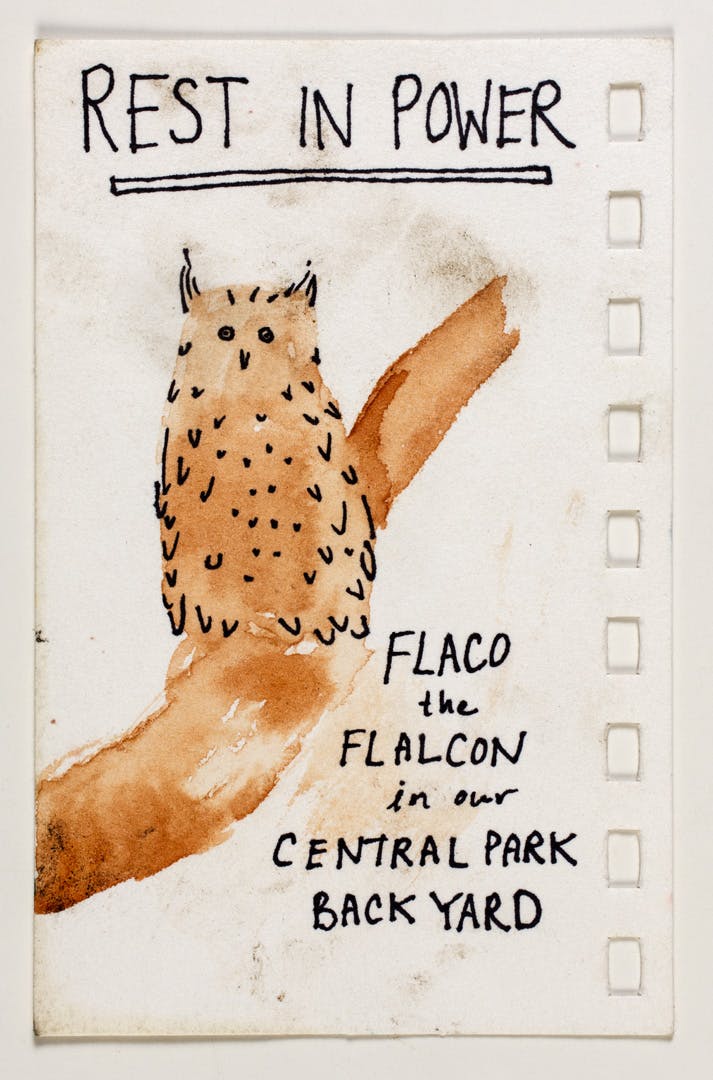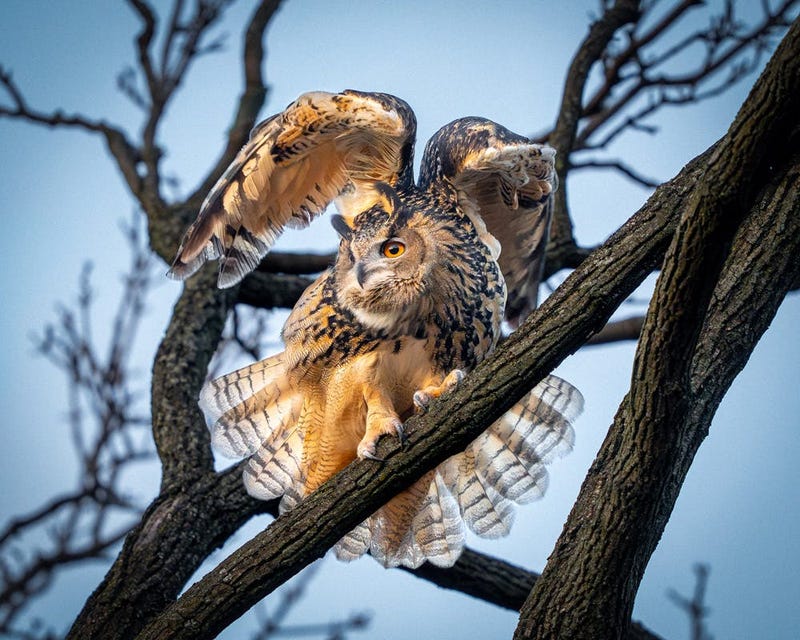
NEW YORK (1010 WINS) — Flaco the Eurasian eagle-owl’s flight to freedom from the Central Park Zoo in February 2023 captured the attention of New Yorkers, and he remained a local celebrity until his death one year later. Now, his journey and status will be memorialized in a new museum exhibit dubbed “The Year of Flaco.”
The exhibition will be on view at The New York Historical on the Upper West Side from Feb. 7 through July 6, and the tribute is meant to revisit the raptor’s escape, life as a free bird in the city and the impact of his death.
After fleeing the zoo, Flaco was often spotted hunting and hiding in his favorite oak tree in Central Park, and he became a favorite photography subject of birders and Flaco fanatics alike. Wildlife enthusiasts raised concerns about his safety in the city, especially when it came to his diet. Their concern was proved valid when—after he crashed into an apartment building and died—his necropsy showed he had enough rat poison and pigeon virus in his system to kill him.
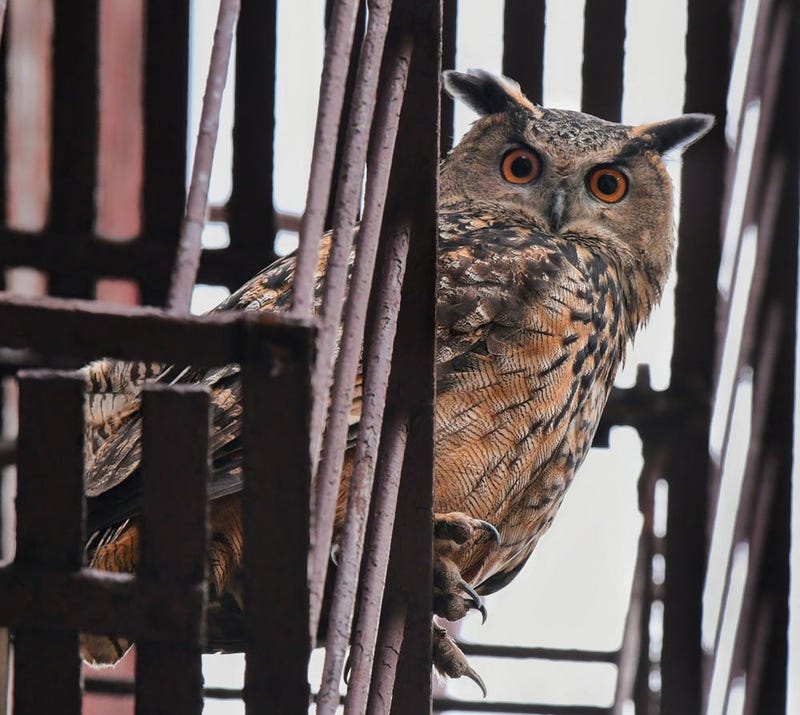
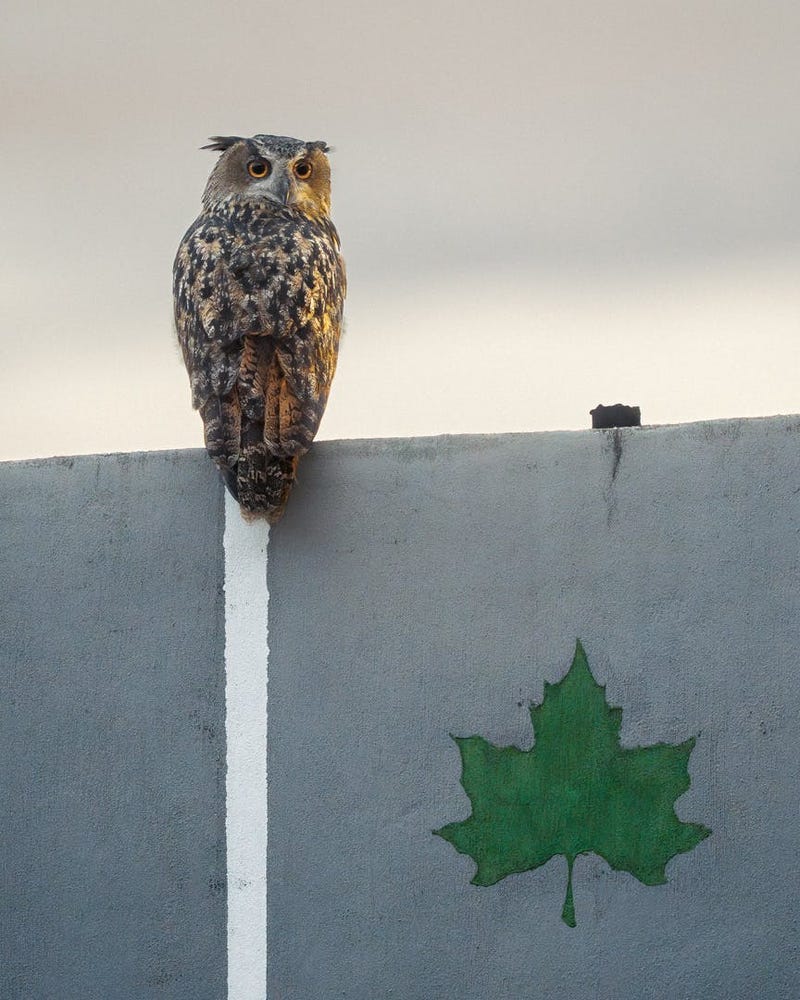
In addition to documenting his flight and life, curator Rebecca Klassen developed the exhibit to examine the dangers birds in urban environments face and the practical steps needed to protect wildlife in the city, including Flaco-inspired legislation.
The memorial exhibit arose as part of The New York Historical’s “History Responds” initiative, which preserves historically significant moments as they happen. The program began in the immediate aftermath of 9/11 and collects materials that capture major events in order to connect future generations with the experiences of today.
Klassen told The New York Times that she was approached by Valerie Hartman, a runner and Flaco enthusiast, who kept tabs on the bird and held onto memorabilia from a Flaco memorial held at his Central Park oak tree after his death. She and three other Flaco fans hadn’t meant to corner Klassen, but through their passion the curator quickly recognized the lasting impression Flaco left on New Yorkers.
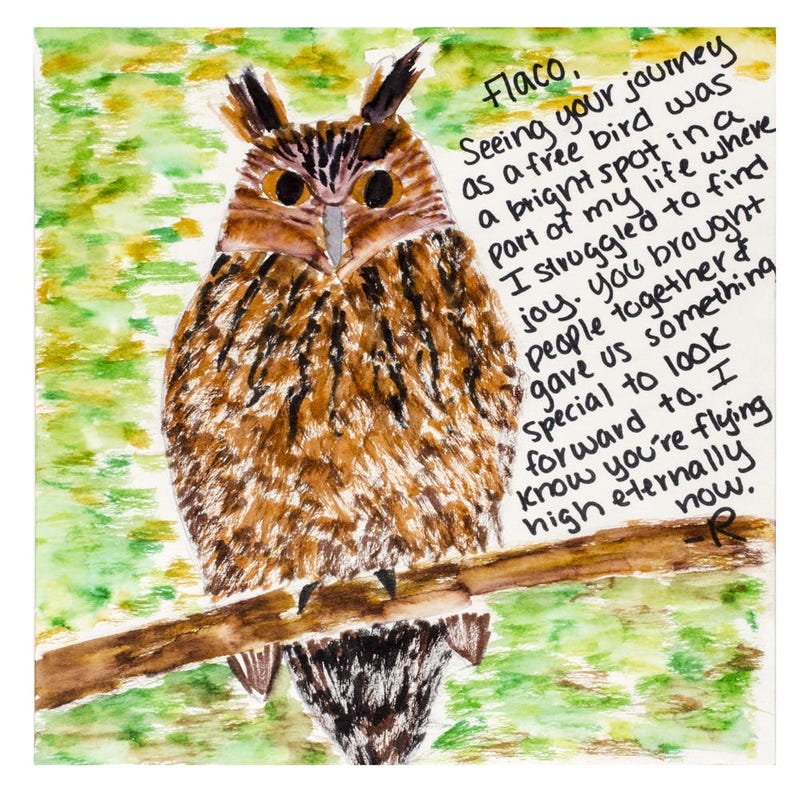
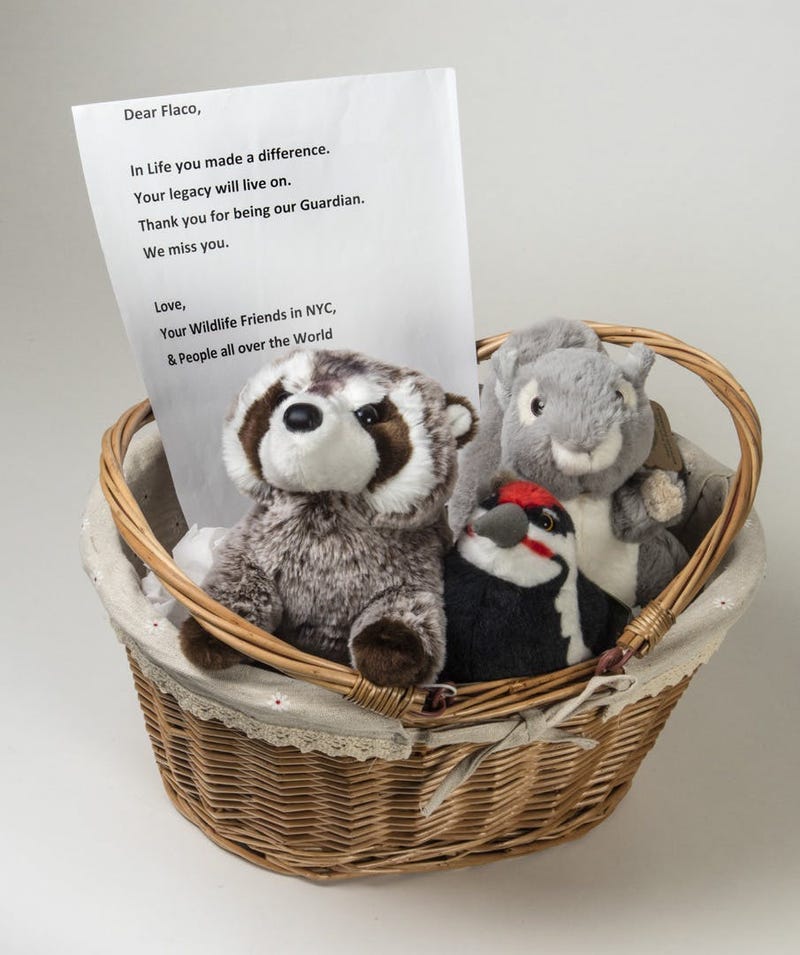
“He’s such a flexible symbol. People see all these things in him—a New Yorker who had grit, an immigrant—and he was liberated, he was free. That idea was very potent for people,” Klassen said. “And he was a raptor. Raptors have a hold on people. You can imagine how people felt when this large raptor appeared on your window sill. You’re going about your day, and this large, beautiful bird appeared.”
A special public program featuring Klassen; the co-authors of "Finding Flaco: Our Year with New York City’s Beloved Owl" Jacqueline Emery and David Lei; and director of conservation and science for the NYC Bird Alliance David Partridge will be held on Feb. 12, in conjunction with the exhibit.
